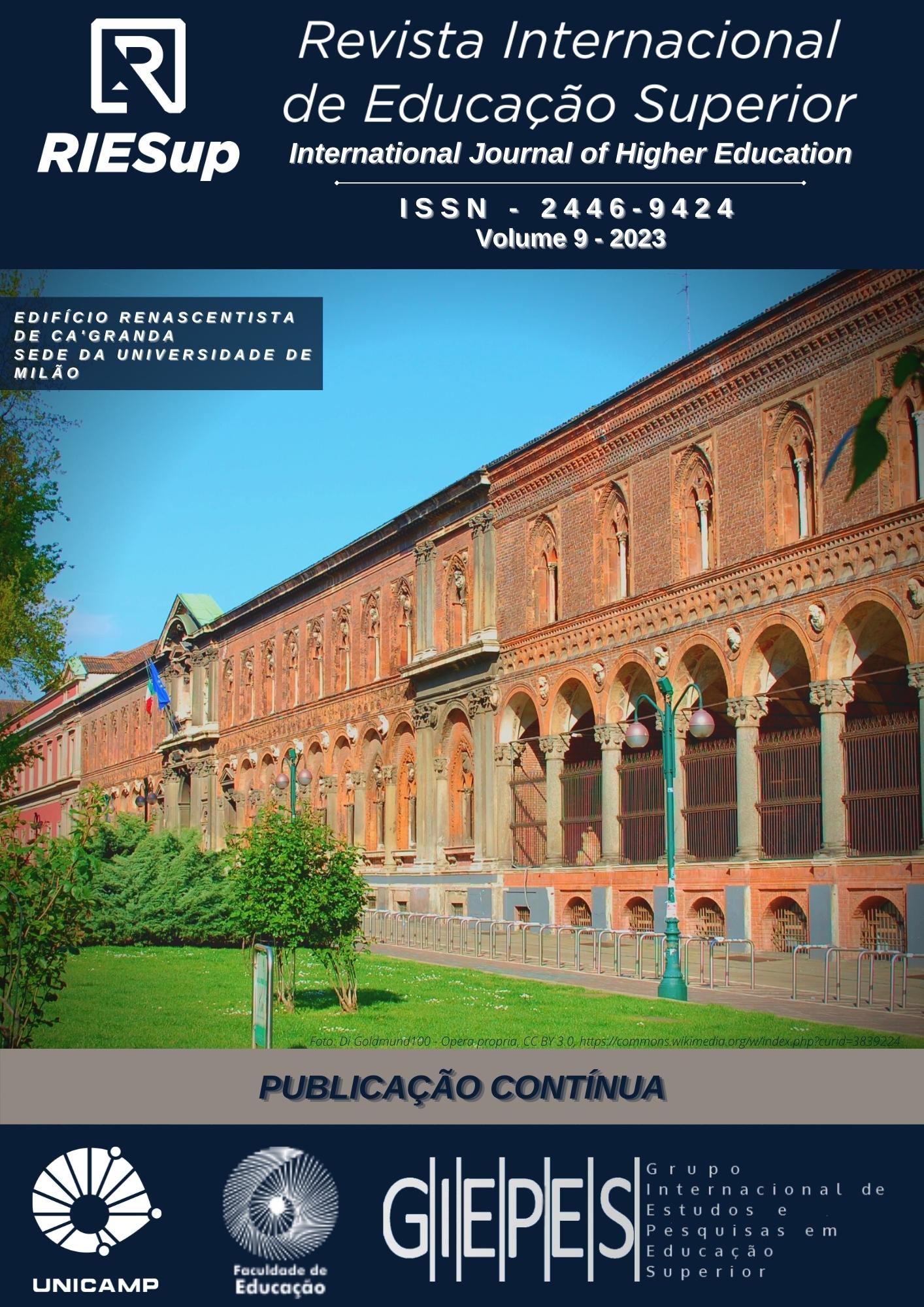Abstract
Introduction: The tutorial groups contribute to active learning, in Problem-Based Learning, stimulating the student to develop critical-reflective reasoning and autonomy, directing him to the construction of skills necessary for the future profession. For such a theoretical construction to be effective, the problems that guide the tutorial groups must be properly evaluated in order to guarantee their quality. Thus, the present study aims to adapt the Questionnarie to evaluation the quality of PBL problems for Brazilian Portuguese. Method: Methodological study of cross-cultural adaptation. The steps were followed: conceptual equivalence of items, translation, synthesis of translations, back-translation, resynthesis, evaluation by the expert review and pre-test committee. The committee was composed of a sample of 7 specialists and the pre-test by 111 undergraduate students in Nursing. The data were analyzed using the SPSS® software, verifying measures of dispersion and central tendency. Reliability was verified using Cronbach's alpha. Results: Translations, synthesis, back-translations and resynthesis were carried out in order to culturally adapt the instrument and preserve the content of the original version. The committee of judges proposed substitutions for synonyms of more common words in higher education, as well as adjustments to favor verbal agreement and coherence. In the pre-test, the questions were analyzed when they were clear, all had a mean higher than 3. Cronbrach's alpha ranged from 0.73 to 0.89. Conclusion: The process of cross-cultural adaptation followed all stages systematically based on the literature. Therefore, the Questionnarie to evaluation the quality of PBL problems is adapted for use in Brazil.
References
BAEHR, Marie. Distinction between assessment and evaluation. In Faculty guidebook. Lisle, IL: Pacific Crest. v.4, p.7-10, 2010.
BORGE, Marcos et al. Aprendizado Baseado em Problemas. Medicina (Ribeirão Preto online). v.47, n.3, p. 301-7, 2014. Acesso em: Maio,2010. Disponível em: http://www.revistas.usp.br/rmrp/article/view/86619. Acesso em: 19 abr. 2020.
BOROCHOVICIUS, Eli; TORTELLA, Jussara. Aprendizagem Baseada em Problemas: um método de ensino-aprendizagem e suas práticas educativas. Ensaio: aval. pol. públ. Educ. v.22, n.83, p.263-94, 2014. . Disponível em: https://www.scielo.br/pdf/ensaio/v22n83/a02v22n83.pdf. Acesso em: 10 mar. 2020.
GÓIS, Joselice; et al. Cross-cultural adaptation of the General Comfort Questionnaire to Brazilian patients with myocardial infarction. Rev Bras Enferm. v. 71, n.6, p.2998-3005, 2018. Disponível em: https://doi.org/10.1590/0034-7167-2017-0557. Acesso em: 5 jan. 2020.
GUILLEMIN, Francis; BOMBARDIER, Claire; BEATON, Dorcas. Cross-cultural adaptation of health-related quality of life measures: literature review and proposed guidelines. J Clin Epidemiol. v. 46, n.12p.1417-32, 1993. Disponível em: https://doi.org/10.1016/0895-4356(93)90142-N. Acesso em: 2 dez. 2019.
HUNG, Woei; MEHL, Katherine; HOLEN, Jodi. The relationships between problem design and learning process in problem-based learning environments: Two cases. The Asia Pacific Education Researcher. v.22, n.4, p. 635–645, 2013. Disponível em: http://dx.doi.org/10.1007/s40299-013-0066-0. Acesso em: 21 dez. 2019.
HUNG, Woei. All PBL Starts Here: The Problem. Interdisciplinary Journal of Problem-Based Learning.v.10, n.2.2016. Disponível em: https://doi.org/10.7771/1541-5015.1604. Acesso em: 20 out. 2019.
JACOBS, Alexandra; et al. Validation of a short questionnaire to assess the degree of complexity and structuredness of PBL problems. Med Educ. v. 37, n.11, p.1001-7, 2003. Disponível em: https://doi.org/10.1046/j.1365-2923.2003.01630.x. Acesso em: 3 Mar. 2020.
KANIN, Carol.; HAWKINS, Jaqueline. A Protocol to Assess the Curricular Validity of Cases for PBL. Teaching and Learning in Medicine. v.9, n.3, p.215-20, 1997. Disponível em: https://doi.org/10.1080/10401339709539844 Acesso em: 7 ago. 2019.
MOALLEM, Mahnaz.; HUNG, Woei.; DABBAGH, Nada. Problem Design in PBL. The Wiley Handbook of Problem‐Based Learning. John Wiley & Sons, Inc. p. 249-272, 2019. Online ISBN:9781119173243. Disponível em: https://onlinelibrary.wiley.com/doi/book/10.1002/9781119173243, Acesso em: 10 jan. 2020.
MUNSHI, Fadi; ZAYAT, El Sayet; DOLMANS, Diana . Development and utility of a questionnaire to evaluate the quality of PBL problems. South East Asian Journal of Medical Education. v. 2, n.2, p.32-40, 2008. Disponível em: http://seajme.md.chula.ac.th/articleVol2No2/OR5_Fadi%20Munshi.pdf. Acesso em: 3 fev. 2019.
REGNAULT, Antoine; HERDMAN, Michael. Using quantitative methods within the Universalist model framework to explore the cross-cultural equivalence of patient- reported outcome instruments. Qual Life Res. v. 24, n.1, p.115-24. 2015. https://doi.org/10.1007/s11136-014-0722-8 Acesso em: 7 jan 2019.
REICHEINHEIM, Michael; MORAES, Cláudia. Operacionalização de adaptação transcultural de instrumentos de aferição usados em epidemiologia. Rev Saúde Pública. v.41, n.4, p.665- 73.2007. Disponível em: http://dx.doi.org/10.1590/S0034-89102006005000035. Acesso em: 17 jan 2020.
SOUZA, Ana Claudia de, ALEZANDRE, Neusa Maria; GUIRARDELLO, Edinês. Propriedades psicométricas na avaliação de instrumentos: avaliação da confiabilidade e da validade. Epidemiol. Serv. Saude. Brasília, v.26, n.3,p.647-657 2017. Disponível em: http://dx.doi.org/10.5123/s1679-49742017000300022. Acesso em: 17 jan 2020.
SOUZA, Ana Paula; MARQUES, Jair; SCOTT, Lisiane. Validação de itens para uma escala de avaliação da inteligibilidade de fala. Pró-Fono Revista de Atualização Científica. v. 22, n.3, p.325-32. 2010. Disponível em: http://dx.doi.org/10.1590/S0104-56872010000300028. Acesso em: 22 jun.2020.
TERWEE, Caroline et al. Quality criteria were proposed for measurement properties of health status questionnairres. J Clin Epidemiol. v.60,n.1,p.34-42.2007. Disponível em: https://pubmed.ncbi.nlm.nih.gov/17161752/. Acesso em: 28 mai.2020.

This work is licensed under a Creative Commons Attribution 4.0 International License.
Copyright (c) 2022 Revista Internacional de Educação Superior


